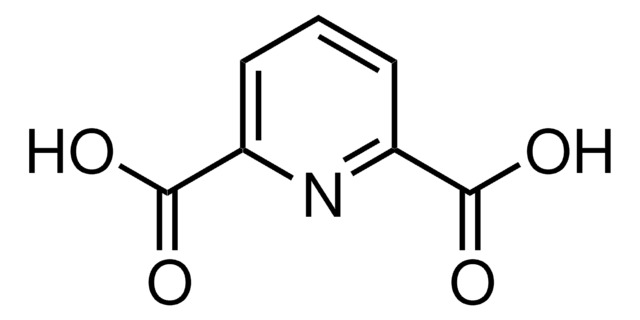16355
Nitric acid
0.1 M (0.1N), eluent concentrate for IC
Synonym(s):
Nitric acid solution
Sign Into View Organizational & Contract Pricing
All Photos(1)
About This Item
Empirical Formula (Hill Notation):
HNO3
CAS Number:
Molecular Weight:
63.01
MDL number:
UNSPSC Code:
12161700
eCl@ss:
38060304
PubChem Substance ID:
NACRES:
NB.21
Recommended Products
product name
Nitric acid concentrate, 0.1 M HNO3 in water (0.1N), eluent concentrate for IC
Quality Level
concentration
0.1 M HNO3 in water (0.1N)
technique(s)
ion chromatography: suitable
SMILES string
O[N+]([O-])=O
InChI
1S/HNO3/c2-1(3)4/h(H,2,3,4)
InChI key
GRYLNZFGIOXLOG-UHFFFAOYSA-N
Looking for similar products? Visit Product Comparison Guide
General description
This eluent concentrate for ion chromatography is determined by potentiometric titration. Content and expiry date can be found on the certificate.
Application
Metrohm IC application note AN-C-161:Trimethylamine N-oxide and biogenic amines in addition to standard cations inwhite wine.
Nitric acid concentrate may be used, during removal of siloxanes in biogases.
Linkage
Visit the IC Portal to learn more
Preparation Note
Prepared with nitric acid and high purity water (18.2 MΩ, 0.2 μm filtered)
related product
Product No.
Description
Pricing
Signal Word
Warning
Hazard Statements
Precautionary Statements
Hazard Classifications
Eye Irrit. 2 - Met. Corr. 1 - Skin Irrit. 2
Storage Class Code
8B - Non-combustible corrosive hazardous materials
WGK
nwg
Flash Point(F)
Not applicable
Flash Point(C)
Not applicable
Personal Protective Equipment
dust mask type N95 (US), Eyeshields, Gloves
Choose from one of the most recent versions:
Already Own This Product?
Find documentation for the products that you have recently purchased in the Document Library.
M Schweigkofler et al.
Journal of hazardous materials, 83(3), 183-196 (2001-05-12)
Methods for the removal of gaseous silicon compounds in biogases are presented. In laboratory studies, various solid adsorption materials and liquid absorption solutions were evaluated for their siloxane elimination efficiencies. Among the liquid sorbents studied, concentrated nitric acid and sulfuric
Alyson M Baergen et al.
Environmental science & technology, 47(2), 815-820 (2012-12-15)
The fate of NO(x) (=NO + NO(2)) is important to understand because NO(x) is a significant player in air quality determination through its role in O(3) formation. Here we show that renoxification of the urban atmosphere may occur through the
Peng Lei et al.
Molecular neurodegeneration, 9, 29-29 (2014-08-16)
We recently reported that Parkinsonian and dementia phenotypes emerge between 7-12 months of age in tau-/- mice on a Bl6/129sv mixed background. These observations were partially replicated by another group using pure Bl6 background tau-/- mice, but notably they did
Klara Midander et al.
Contact dermatitis, 70(6), 361-368 (2014-03-13)
Many daily contacts with metallic items are short and repetitive, and result in metal release; material, sweat, friction and wear may all be important. To study cobalt release and skin deposition as a result of many short and repetitive contacts
Stijn Smulders et al.
Toxicological sciences : an official journal of the Society of Toxicology, 141(1), 132-140 (2014-06-14)
The unique physical and chemical properties of nanomaterials have led to their increased use in many industrial applications, including as a paint additive. For example, titanium dioxide (TiO2) engineered nanoparticles (ENPs) have well-established anti-UV, self-cleaning, and air purification effects. Silver
Our team of scientists has experience in all areas of research including Life Science, Material Science, Chemical Synthesis, Chromatography, Analytical and many others.
Contact Technical Service



